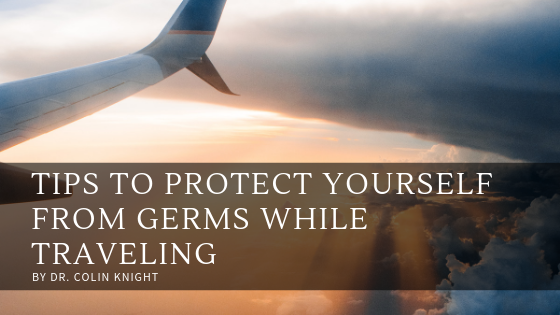Even the healthiest habits utilized daily can fail at protecting you in crowded locations like airports and planes. There are additional precautions that you can take between the time you arrive at the airport and your intended destination to reduce the chance of contracting illnesses from fellow travelers.
A large part of why these habits fail to protect diligent people is the differences in the environment, including the increase in people. The concentration of individuals for extended periods increases the likelihood your seat brings you close to someone who is ill. Some believe the way air circulates within an airplane can lead to passengers contracting a range of viruses, from the common cold to tuberculosis. The Worldwide Health Organization (WHO) explains that passengers need not be overly concerned about this affecting their health.
Here are some ways that you can enhance the way you protect yourself during air travel, based on ideas from WebMD.
These extra precautions require little effort on your part and take the majority of airline restrictions for longer flights into consideration.
Avoid messy alcohol gels by bringing moist wipes, instead. Diaper wipe manufacturers no longer use alcohol as an ingredient, but you can add some yourself. Allow the packet to dry out some before adding the alcohol. Do not add a large amount, as you do not want an excessive amount of liquid that might leak. Also, mark the container, so it never gets used as it was initially intended. Using these wipes before and after bathroom use can significantly diminish the number of bacteria that make it from your hands to your face.
Just as many people wear face masks to prevent both the spreading of colds as well as getting sick from others, bringing a pillow and blanket from home can protect you. Make sure the items you choose are freshly laundered and do not contain any pet hair that other passengers might find irritating.
Before boarding, security requirements entail searching passengers and their belongings, including shoes. The area can pose hazards to your feet, from tiny microbes that cause intense itching to slivers of glass that come loose from dirty boots. Having a clean pair of socks to slip on over hosiery before you walk through the checkpoint can save both your hose and your feet. Similarly, changing into a fresh pair before you put your shoes back on can protect your feet from foreign substances that the first pair of socks might have collected.

